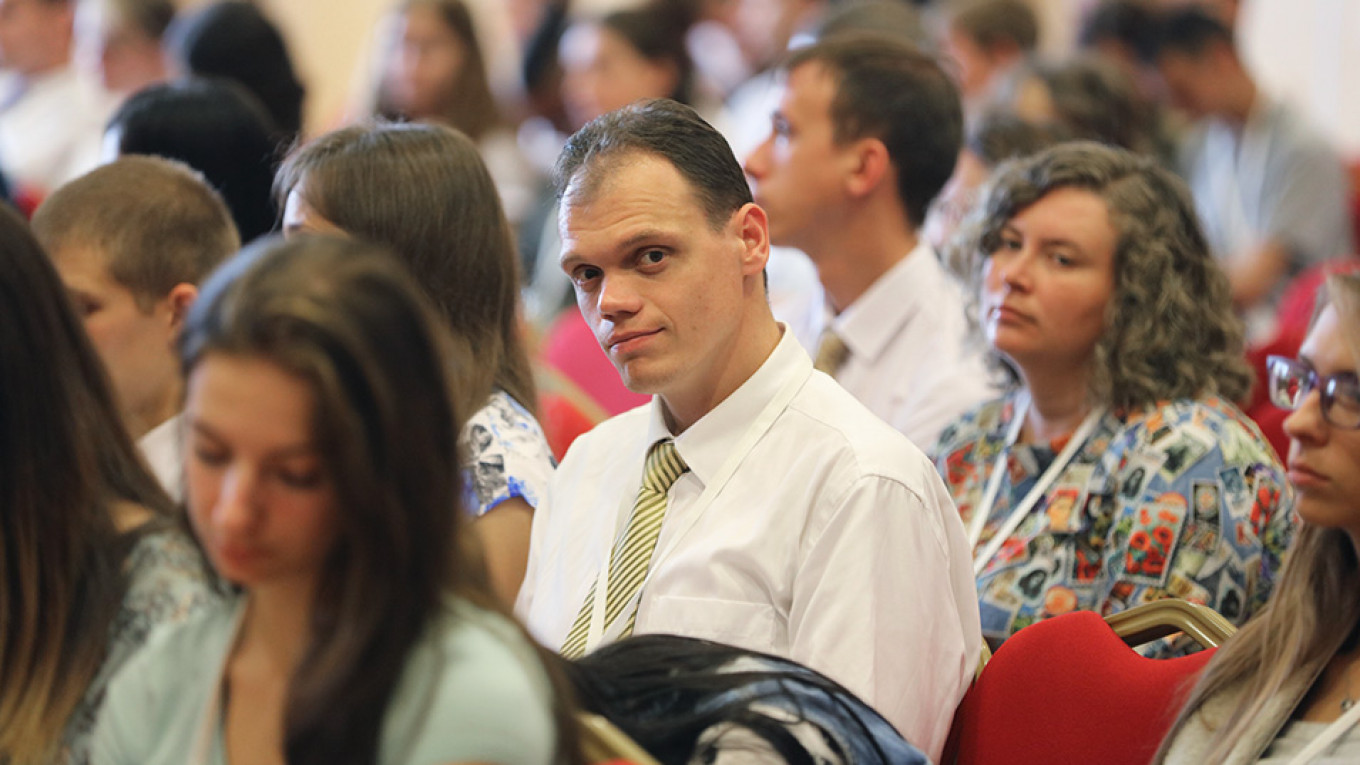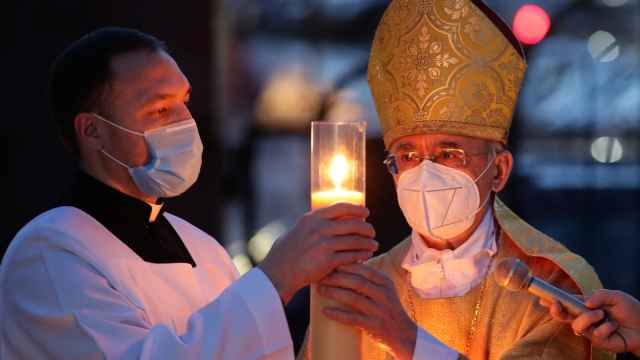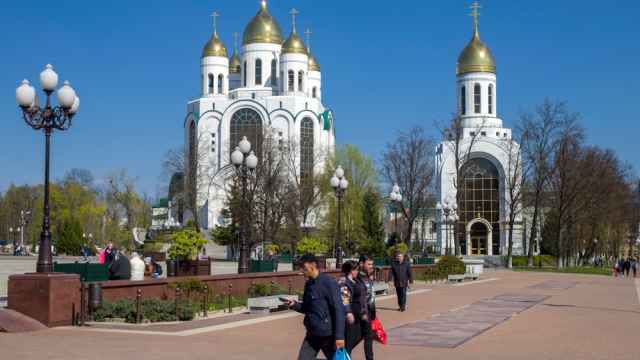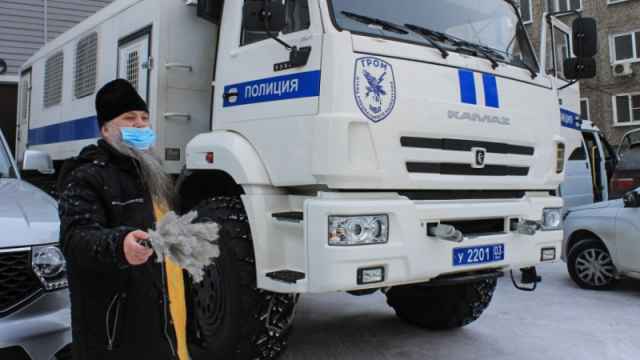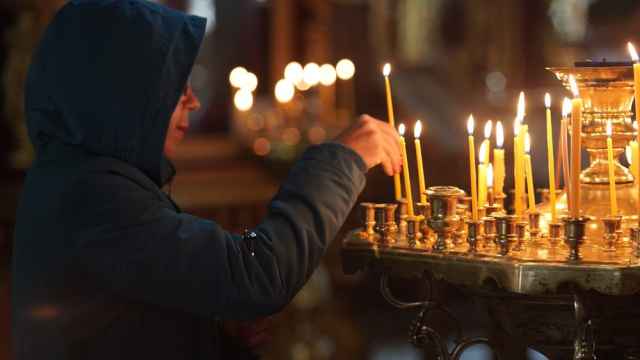SARATOV — Olga Trunova has no secrets from her neighbor: they talk about everything. But there is one topic which is off-limits. Their faith.
“She goes to the Orthodox Church,” Trunova, 77, said as she laid out homemade pies in her apartment, where paintings of a blond-haired, blue-eyed Jesus decorate the walls. “I told her that I have found the light in the Church of Jesus Christ of Latter-day Saints. She said that our church is one of fanatics. … So I just don’t talk to her about it anymore.”
Religious minorities have an uneasy presence in Russia today. Jehovah’s Witnesses have borne the brunt of the crackdown, after the group was labeled an extremist organization and its first member was convicted to six years in prison earlier this month.
With an estimated 22,000 practicing members in Russia, according to its own estimates, the Church of Jesus Christ of Latter-day Saints is wary of similar intimidation. But the pressure does not just come from above: Church members also face discrimination from friends, family and neighbors.
As Russian Latter-day Saints are shunned by their communities, they struggle to assert their own identity within a church that was founded in the United States and within a country that is increasingly hostile to foreign influence.
Down on their luck
Trunova is one of thousands of Russians who converted to the Church of Jesus Christ of Latter-day Saints, unofficially referred to as the Mormon church, in the 1990s and early 2000s.
While the church is headquartered in the United States, it famously sends missionaries across the world. And after the fall of the Soviet Union, these missionaries set their sights on Russia. As its membership grew, three stakes — or administrative units — were established across the country: in Moscow, St. Petersburg and Saratov.
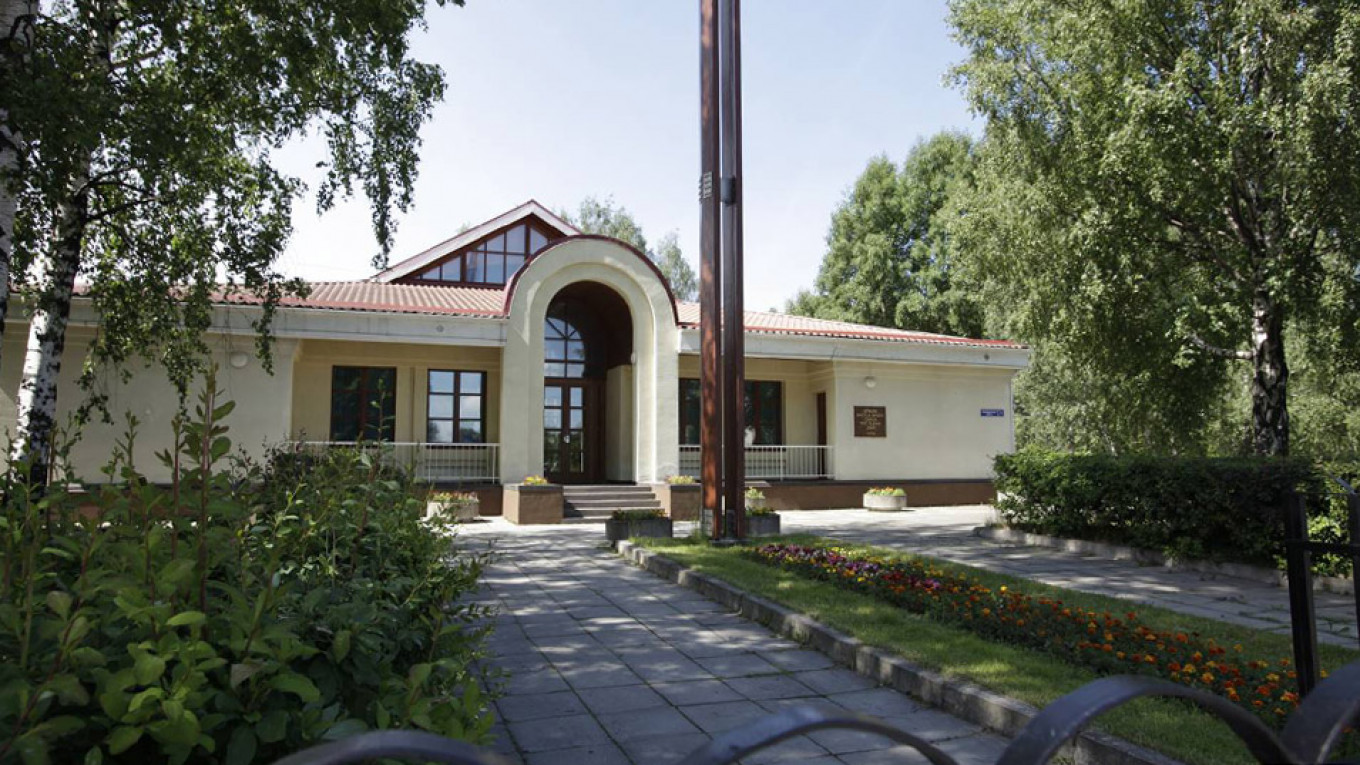
Foreign church leaders and local members say that most of their members have undergone traumatic experiences or feel marginalized from society.
“Many people inside of our faith are a little bit down on their luck. The economy is not what they wish it was, pensions are varying,” Sterling Eric Ottesen, president of the Rostov mission, which comprises all of southern Russia, told The Moscow Times. “Some of them have felt lonely and many of them are widows.”
Alexander, 31, joined the church in 2005 in a search for comfort following his father’s suicide.
“I was emotionally destroyed,” Alexander, who declined to give his last name, told The Moscow Times. “The church showed up and offered friendship, community and a lot of blessings.”
Navigating political uncertainty
Since the early 2000s, however, the Latter-Day Saints' congregation has steadily shrunk, despite falling living standards and ongoing hardship for many Russians. Ottesen believes the decrease in the church's membership can be linked to heightened political pressure in recent years.
“There was really a pop in the ’90s. By 2003 or 2004, it was tapering,” Ottesen said. “Politically, things began to change.”
In 2016, the Russian government passed anti-terrorism legislation that prohibited religious proselytization, forcing Mormon missionaries to rebrand themselves as “volunteers” and preventing them from seeking new converts. The church’s Russian-language resource website, mormonnews.ru, is currently blocked by Russia’s media watchdog, Roskomnadzor.
One way in which Latter-day Saints are trying to stay out of the limelight is by complying with the rules. “The church’s primary aim is to obey Russian law, not challenge it,” Ottesen told The Moscow Times. That strategy seems to be working out well: Last year the church announced it was planning to build its first temple in "a major city in Russia."
“They think that since the church is from America, it is dishonest, it wants to deceive us, rob us. They think that a volunteer for an American church is automatically a spy.”
But compliance comes at a cost. “There were even more negative feelings about the church back when missionaries used to walk the streets and talk to people,” Trunova said. “On the other hand, back then, a lot more people came to church. Now there is less information available.”
Church members say they're often lumped together with other non-traditional religious groups, which leads to further stereotyping. This became especially evident when Russia started targeting Jehovah’s Witnesses.
“Sometimes Russians think that we’re Jehovah’s Witnesses. We are not,” insists Emily Petersen, an 18-year-old volunteer in Saratov. “But the main prejudice is that people think we have ulterior motives.”
Suspicion from all around
Church members say that current political tensions between Russia and the United States have contributed to negative stereotypes that the church kidnaps people, takes their money and spies on locals.
“Russian people think this way because they read false information about our church on the internet,” said Alyona Samoilova, 18. “I know because I’ve also read this information, and a lot of it just isn’t true.”
The law against religious proselytization gave further credence to these apprehensions, church members say. “This new policy adds its own spoon of tar,” said Trunova’s daughter, Svetlana Chelyshkova. “They think that since the church is from America, it is dishonest, it wants to deceive us, rob us. They think that a volunteer for an American church is automatically a spy.”
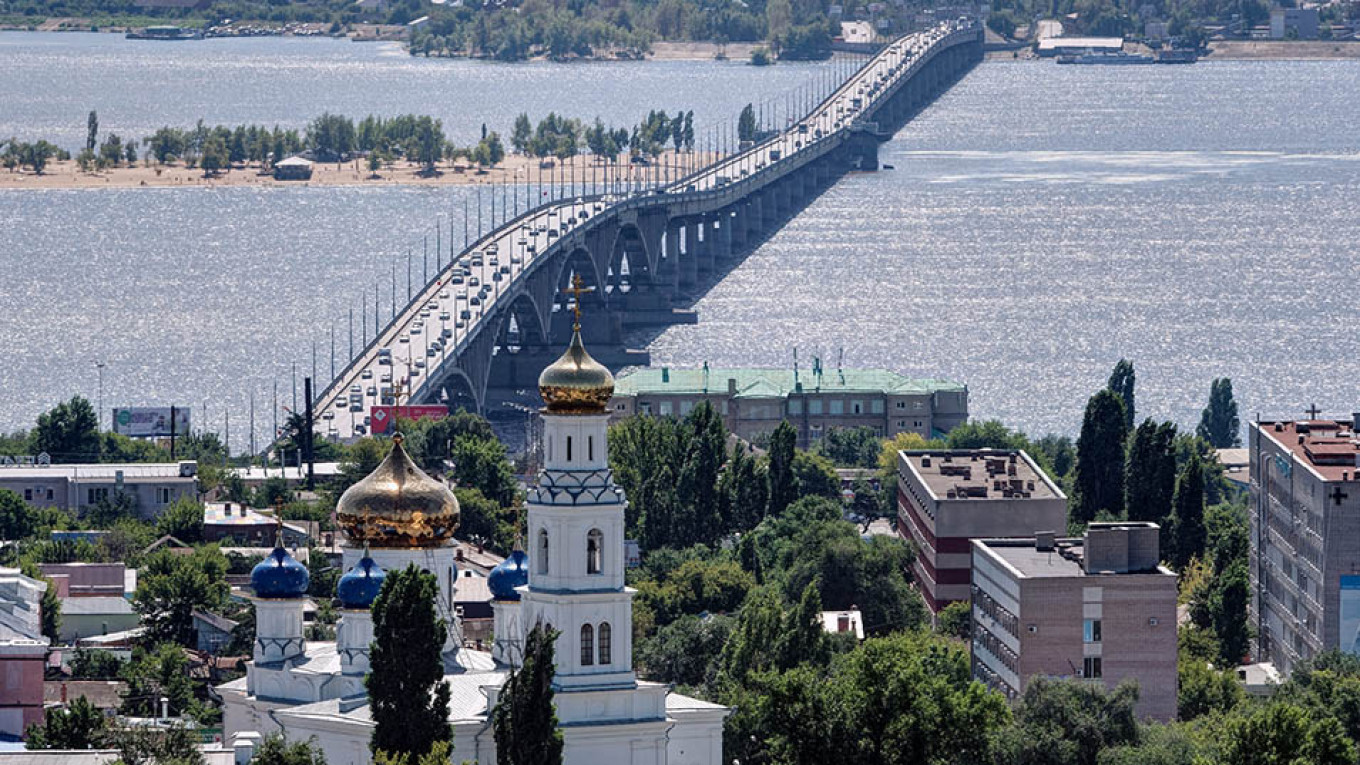
'American culture is taken for church culture'
While many Russians see the Church of Jesus Christ of Latter-day Saints as purely American, church leadership insists that the institution has no nationality. Ottesen said there are no major differences between church practice in Russia and in America.
“I would say it is more similar than it is different. We even use the same color hymn book,” Ottesen said. “If you walk into the back of a church meeting in Kansas City on a Sunday, it would have a similar feel as if you walked into the Saratov building.”
But because church culture is so distinct from Russian traditions, some constituents are more skeptical of claims that their faith is universal. For many members, the boundaries between American culture and church culture tend to blur — and may contribute to the suspicion they face from fellow Russians.
“A lot of the time, American culture is taken for church culture,” Alexander said. “Sometimes it’s good, sometimes it’s bad. We do Thanksgiving and Halloween, even though they’re not part of our religion.”
Isolated in their faith
One major difference between Russian and American Latter-day Saints, Ottesen said, is that Russia’s smaller church population and members’ alienation from society make them even more orthodox than their American counterparts. Because the faith requires constituents to pay tithes, attend meetings, read scripture and give up alcohol, church laws often conflict with Russians’ everyday habits, pushing more casual members away, Chelyshkova said.

By embracing church culture, Alexander has in some ways been cut off from his previous life, he said.
“One reason why I’m still in the church is I don’t have any other group to stick with,” he said. “I was abandoned by my friends when I joined the church. I stopped drinking and partying with them; I changed my behavior. If I would leave right now, I would have nothing to do at all.”
Ottesen recognizes that loneliness and isolation are some of the most pressing issues for Latter-day Saints in Russia today. He believes that the ban on proselytization has actually helped the church address these issues, forcing church volunteers to provide support to existing members instead of seeking out new converts.
But no matter how much adversity grows, church leaders and members say that Russian Latter-day Saints will remain some of the world’s most devout followers – despite, and perhaps in spite of, their shrinking community.
“Many people have left the church,” Chelyshkova said. “Those left standing are the most devoted, for whom our religion is not just a way to express ourselves before others but a way of life.”
A Message from The Moscow Times:
Dear readers,
We are facing unprecedented challenges. Russia's Prosecutor General's Office has designated The Moscow Times as an "undesirable" organization, criminalizing our work and putting our staff at risk of prosecution. This follows our earlier unjust labeling as a "foreign agent."
These actions are direct attempts to silence independent journalism in Russia. The authorities claim our work "discredits the decisions of the Russian leadership." We see things differently: we strive to provide accurate, unbiased reporting on Russia.
We, the journalists of The Moscow Times, refuse to be silenced. But to continue our work, we need your help.
Your support, no matter how small, makes a world of difference. If you can, please support us monthly starting from just $2. It's quick to set up, and every contribution makes a significant impact.
By supporting The Moscow Times, you're defending open, independent journalism in the face of repression. Thank you for standing with us.
Remind me later.


